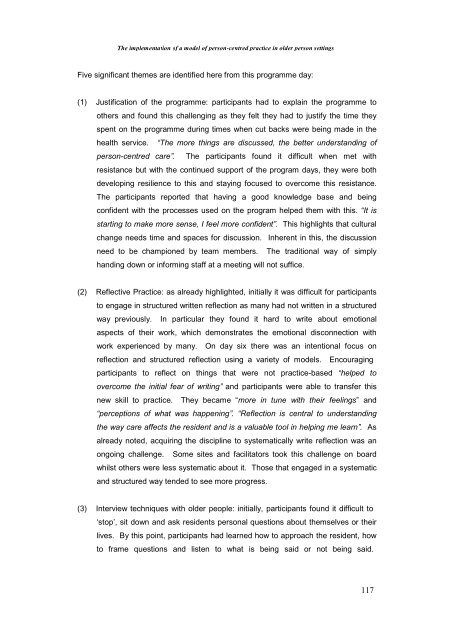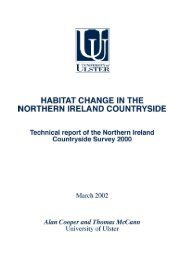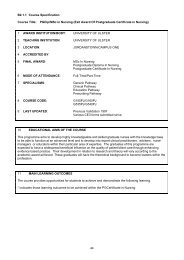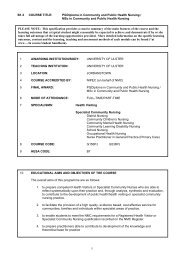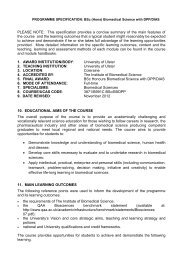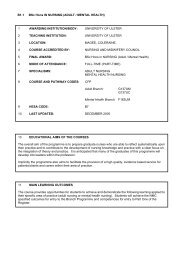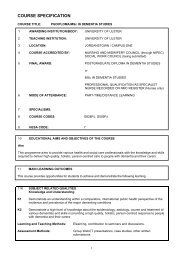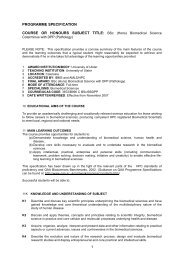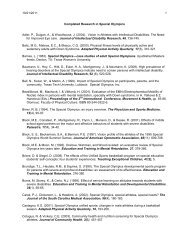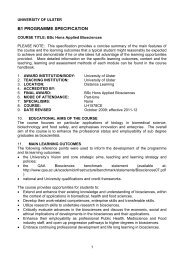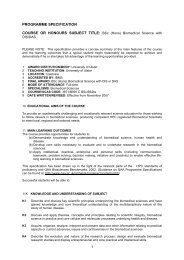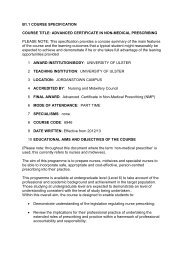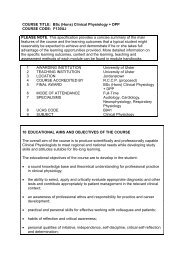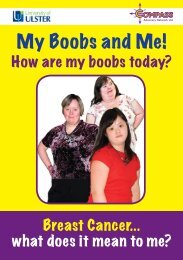The Implementation of a Model of Person-Centred Practice In Older ...
The Implementation of a Model of Person-Centred Practice In Older ...
The Implementation of a Model of Person-Centred Practice In Older ...
Create successful ePaper yourself
Turn your PDF publications into a flip-book with our unique Google optimized e-Paper software.
<strong>The</strong> implementation <strong>of</strong> a model <strong>of</strong> person-centred practice in older person settings<br />
Five significant themes are identified here from this programme day:<br />
(1) Justification <strong>of</strong> the programme: participants had to explain the programme to<br />
others and found this challenging as they felt they had to justify the time they<br />
spent on the programme during times when cut backs were being made in the<br />
health service. “<strong>The</strong> more things are discussed, the better understanding <strong>of</strong><br />
person-centred care”. <strong>The</strong> participants found it difficult when met with<br />
resistance but with the continued support <strong>of</strong> the program days, they were both<br />
developing resilience to this and staying focused to overcome this resistance.<br />
<strong>The</strong> participants reported that having a good knowledge base and being<br />
confident with the processes used on the program helped them with this. “It is<br />
starting to make more sense, I feel more confident”. This highlights that cultural<br />
change needs time and spaces for discussion. <strong>In</strong>herent in this, the discussion<br />
need to be championed by team members. <strong>The</strong> traditional way <strong>of</strong> simply<br />
handing down or informing staff at a meeting will not suffice.<br />
(2) Reflective <strong>Practice</strong>: as already highlighted, initially it was difficult for participants<br />
to engage in structured written reflection as many had not written in a structured<br />
way previously. <strong>In</strong> particular they found it hard to write about emotional<br />
aspects <strong>of</strong> their work, which demonstrates the emotional disconnection with<br />
work experienced by many. On day six there was an intentional focus on<br />
reflection and structured reflection using a variety <strong>of</strong> models. Encouraging<br />
participants to reflect on things that were not practice-based “helped to<br />
overcome the initial fear <strong>of</strong> writing” and participants were able to transfer this<br />
new skill to practice. <strong>The</strong>y became “more in tune with their feelings” and<br />
“perceptions <strong>of</strong> what was happening”. “Reflection is central to understanding<br />
the way care affects the resident and is a valuable tool in helping me learn”. As<br />
already noted, acquiring the discipline to systematically write reflection was an<br />
ongoing challenge. Some sites and facilitators took this challenge on board<br />
whilst others were less systematic about it. Those that engaged in a systematic<br />
and structured way tended to see more progress.<br />
(3) <strong>In</strong>terview techniques with older people: initially, participants found it difficult to<br />
‘stop’, sit down and ask residents personal questions about themselves or their<br />
lives. By this point, participants had learned how to approach the resident, how<br />
to frame questions and listen to what is being said or not being said.<br />
117


